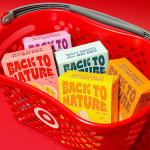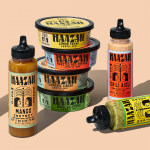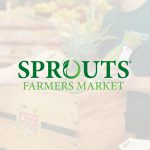NSF International Launches New Non-GMO Certification Program
Allergen-free, organic, vegan, kosher — for a food or beverage company choosing which certifications to pursue can be daunting. And even if you know which you want to achieve, how to then go about getting certification can be overwhelming. This is especially true with non-GMO (genetically modified organism) certification as the nuances around what is a GMO are complicated and, as a whole, it’s still relatively a new subject.

That changed yesterday courtesy of NSF International, a global independent organization that writes standards as well as tests and certifies products for the food, water, health sciences, and consumer goods industries. As part of its new suite of GMO Transparency Services, NSF now offers companies the choice of working with the organization to achieve Non-GMO Project Certified status or pursue certification through its new “Non-GMO True North” program.
NSF’s certification, which is part of its Consumer Values Verified Program, utilizes accepted practices from both the E.U. and Vermont’s GMO labeling requirements to create a more streamlined process. Additionally, True North certification takes into account some of the traceability, segregation and supplier practices a company may already be doing for other certifications. For example, if a company is already certified organic, NSF accepts this as proof of Non-GMO status.
“True North is another fantastic way to leverage systems that are already in place,” Jaclyn Bowen, director of NSF International’s Consumer Values Verified Program, told Project NOSH.
Bowen said the True North certification accommodates for “key quality systems and requirements that [producers] already have because of their different food safety requirements… and gives credibility for having those types of systems.”
Beyond the certification itself, simply utilizing NSF’s non-GMO suite can be a more convenient option for food and beverage producers, Bowen said. Because NSF offers many other certifications, companies can simply create one large certification process with NSF and not have to tackle each individually, thus saving time and avoiding repeat paperwork.

That’s not to say the True North certification is not rigorous or thorough. As part of maintaining the certification companies must agree to unannounced audits, unannounced chain of custody sampling and independent testing — among other standards.
The announcement of True North comes at a time where GMO discussion has reached an all time importance in retail. On a basic level, consumers are seeking more and more insight and transparency into where their food comes from and how it was produced. As a result, certifications are becoming seen as more just the cost of doing business as a food company.
But beyond consumer demands, there are both retail and legal reasons why companies are trying to certify their products as non-GMO. Whole Foods Market has pledged to offer consumers “full GMO transparency” in its stores by 2018. While products that are not non-GMO won’t be kicked out of the chain, it’s yet to be seen how the labeling could affect sales.
Additionally the state of Vermont GMO labeling laws, which require labeling of genetically modified ingredients, go into effect in July, 2016. Depending on how constituents respond, there could be more states who pass similar laws. On an even larger level, the U.S. government is still debating the Safe and Accurate Food Labeling Act, which largely deals with GMO labeling and would preempt states from requiring labeling of GMO food.
The full press release can be found below:
ANN ARBOR, Mich. – Responding to industry and consumer demand for non-GMO certification options, NSF International, the not-for-profit public health and standard development organization, has launched NSF Non-GMO True North. NSF International’s newest certification offering expands its suite of GMO transparency services for retailers, manufacturers, suppliers and producers. The new non-GMO certification, available through NSF International’s Consumer Values Verified™ Program, is offered in addition to Non-GMO Project verification.
NSF Non-GMO True North certification utilizes elements of global and domestic GMO labeling regulations, including EU and Vermont GMO labeling requirements. The certification gives credit for food safety quality system best practices including segregation, traceability and supplier approval and monitoring programs. Additionally, to ensure consumer confidence and transparency, NSF Non-GMO True North requires risk assessment-based unannounced audits, unannounced chain of custody sampling and independent testing. It also requires manufacturers to perform routine testing.
NSF Non-GMO True North provides manufacturers an additional certification for sourcing and production claims on packaging and in marketing materials at a time when non-verified and never inspected claims for “Non-GMO” or “GMO-Free” are increasingly commonplace in the absence of federal oversight.
Research reveals a gap between what American consumers report they want in GMO transparency and how U.S. manufacturers and the supply chain are keeping pace. According to a recent Consumer Reports study, “…GMO labeling isn’t required in the U.S. Yet our survey found that 92 percent of Americans want genetically modified foods to be labeled.”
“NSF Non-GMO True North is an expansion in non-GMO certification services that will help consumers make an informed decision about the food they eat, as more products in the marketplace are able to be independently certified by a trusted third-party certifier,” said Jaclyn Bowen, director of NSF International’s Consumer Values Verified Program. “As consumer demands for non-GMO products grow, NSF Non-GMO True North offers producers (including ranchers and farmers), processors and manufacturers a solution that utilizes fundamentals of other current and emerging regulatory and food safety requirements.”
The conversation around GMO labeling continues to grow in relevance as the U.S. government considers the Safe and Accurate Food Labeling Act. Additionally, the state of Vermont GMO regulation requires the labeling of food products containing genetically engineered ingredients effective July 2016.
NSF Non-GMO True North is part of the NSF Consumer Values Verified Program which can harmonize multiple certifications and inspections, including its GMO transparency services, into one fluid process. This increases efficiency for companies trying to reach and inform today’s increasingly health- and environmentally-conscious consumers.
Additional services offered through the NSF Consumers Values Verified program include gluten-free, kosher and True Source Honey certifications well as organic certification offered by QAI Inc.
Learn more about NSF Consumer Values Verified by visiting ValuesVerified.org or contacting Nova Sayers at nsayers@nsf.org or +1 (734) 913-5710.
About NSF International
NSF International is a global independent organization that writes standards, and tests and certifies products for the food, water, health sciences and consumer goods industries to minimize adverse health effects and protect the environment (nsf.org). Founded in 1944, NSF is committed to protecting human health and safety worldwide and is a Pan American Health Organization/World Health Organization (WHO) Collaborating Center on Food Safety, Water Quality and Indoor Environment.
The NSF Global Food Division provides expertise and accredited services across all supply chain sectors, from agriculture, produce, processing, distribution and dairy, to seafood, retail and restaurants. Services include Global Food Safety Initiative (GFSI) certification (SQF, BRC, GLOBALG.A.P., FSSC, IFS, BAP and Canada GAP), HACCP validation and inspection, expert auditing and technical services, and organic food certification through Quality Assurance International (QAI). NSF is also the leading certifier of foodservice equipment, nonfood compounds and bottled water/beverages.
















